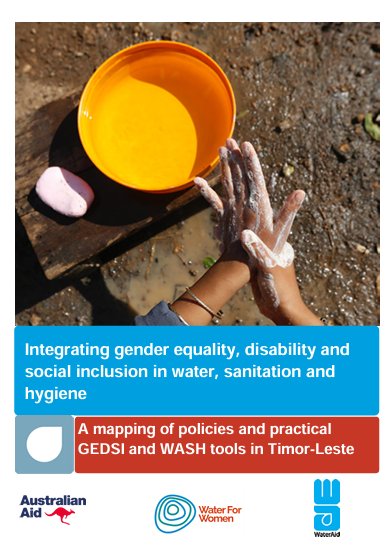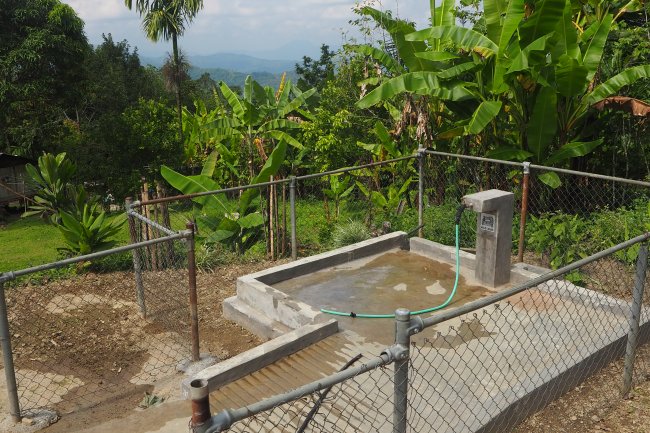Integrating gender equality, disability and social inclusion in water, sanitation and hygiene
Over the past decade in Timor-Leste, water sanitation and hygiene (WASH) efforts have increasingly addressed gender equality, disability and social inclusion (GEDSI). The Government of Timor-Leste's WASH-related policies, frameworks, budget processes and service delivery models integrate GEDSI in various ways. These efforts have been further supported by international and local non-government organisations’ development of practical tools and guidance to address and improve GEDSI within WASH services. Many innovative and effective GEDSI tools have been designed, tested and rolled out in Timor-Leste's WASH sector. This reference guide provides an overview of the full range of GEDSI tools that exist for WASH in Timor-Leste to support better uptake of tools and approaches.

The toolkit mapping aims to provide a comprehensive collection of tools, resources, and best practices that facilitate GEDSI into WASH policy and program implementation, monitoring and evaluation while also strengthening institutional capacity. The toolkit mapping specific objectives are to:
• To provide national, municipal, and local government and WASH partners with a structured and accessible compilation of practical tools, guidelines, and resources for integrating GEDSI at all
stages of WASH policies and projects.
• To support WASH actors at national and subnational levels in developing and implementing inclusive WASH programs that effectively address the unique needs of diverse populations.
• To equip the WASH actors with knowledge and skills to apply those GEDSI tools effectively.
The toolkit mapping organises GEDSI tools according to key domains of WASH system strengthening, including policy and program development, capacity building, financing and budgeting, monitoring and evaluation and service delivery.


